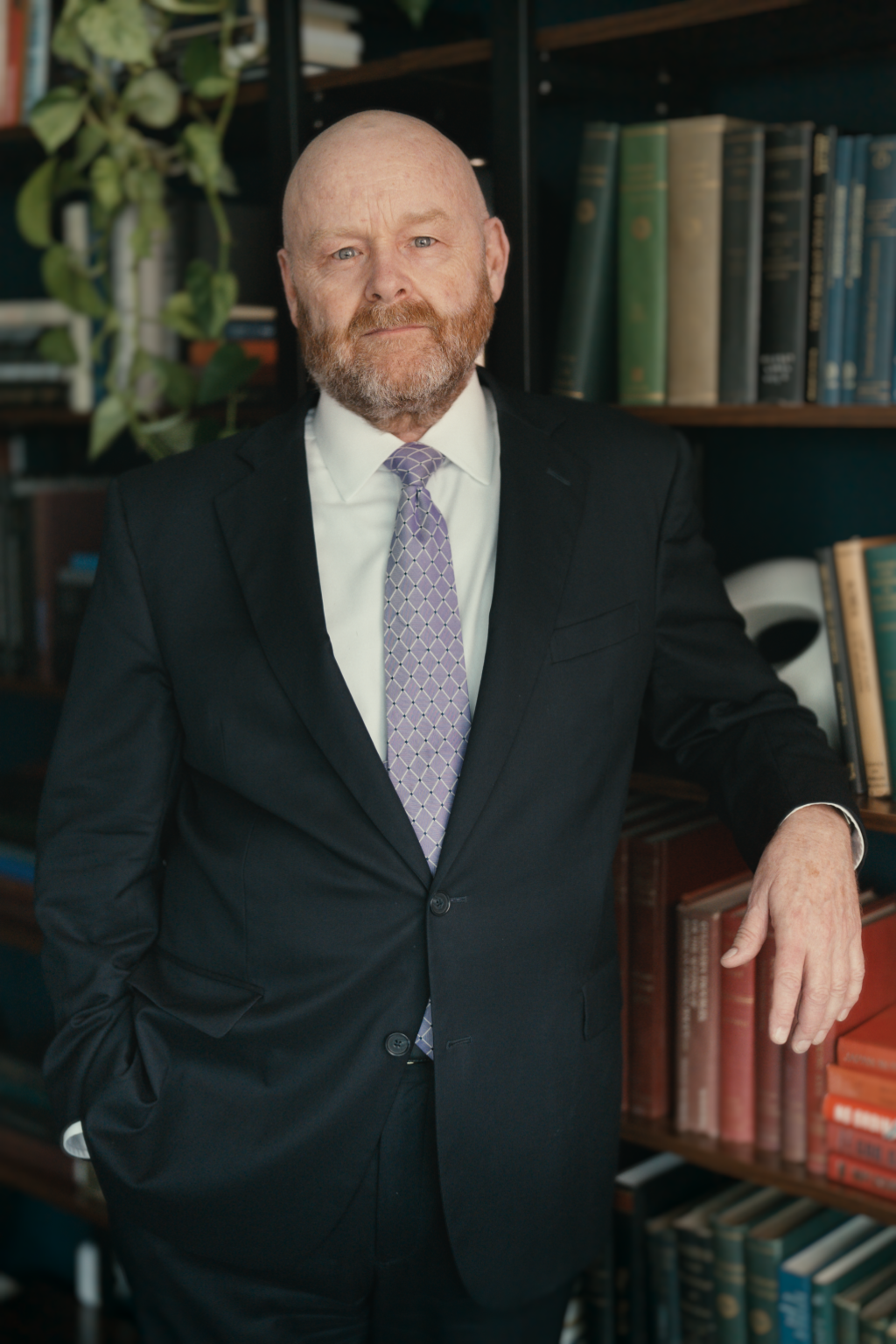Ten World Leaders Who Died in 2012
Ten people who passed away this year who shaped world affairs for better or worse.

By experts and staff
- Published
Experts
![]() By James M. LindsayMary and David Boies Distinguished Senior Fellow in U.S. Foreign Policy
By James M. LindsayMary and David Boies Distinguished Senior Fellow in U.S. Foreign Policy
Yesterday I wrote about ten American foreign policy luminaries who died in 2012. Below are ten significant foreign leaders and diplomats who died in 2012.
Raymond Aubrac (b. 1914) was a leader of the French Resistance during World War II. Born Raymond Samuel to a Jewish family in eastern France, he was serving as an engineering officer at the Maginot Line when World War II began. In October 1940, he and his wife Lucie founded Liberation-Sud, a Resistance group based in Lyon, and he took the nom de guerre of Raymond Aubrac. He was arrested several times by the Nazis, but always managed to escape. The most notable instance came in mid-1943 when he was arrested, tried, and sentenced to death. Lucie used bribery and deception to delay the execution long enough for fellow members of the Resistance to free him in a rescue befitting a Hollywood action flick. (Lucie told a fictionalized version of their World War II experiences in the novel, “Outwitting the Gestapo.”) After the war, he oversaw the destruction of mines across France, worked for the UN Food and Agriculture Organization, and even traveled to Hanoi in 1967 at the request of the U.S. government to attempt to negotiate the end of the Vietnam War. The latter incident came about because Aubrac and his wife shared a singular distinction: French general and eventual president Charles de Gaulle was the godfather of one of their daughters, and Vietnamese leader Ho Chi Minh was the godfather of another.
Ahmed Ben Bella (b. 1918) was Algeria’s first elected president. He fought for France during World War II, first as part of the French army, where he was awarded the Croix de Guerre, and then as part of the Free French Forces, where Gen. Charles de Gaulle personally awarded him the Médal Militaire. Ben Bella was radicalized by the cruelties he saw the French inflict on his countrymen when he returned to Algeria after the end of World War II. He joined the Front de Libération Nationale (National Liberation Front or FLN), eventually becoming one of its nine most senior members. The French government nearly killed him on two occasions; he was captured in 1956 and spent the next five-plus years in a French prison. Algeria finally won its independence in 1962 after a bloody civil war. The next year Ben Bella ran unopposed for president. One of his colleagues, Col. Houari Boumedienne, deposed him in 1965, and he spent the next fourteen years under house arrest. After Boumedienne died in 1980, Ben Bella was allowed to live in exile in Lausanne, Switzerland.
Claude Cheysson (b. 1920) was Minister of External Affairs of France from 1981 to 1984 under President François Mitterrand. A World War II veteran, he joined the French Foreign Ministry and worked in a wide variety of positions, including head of liaison service with West German leaders and ambassador to Indonesia. He also worked as European Commissioner in the 1970s until he joined the French government. Despite being a seasoned diplomat, Cheysson occasionally made enemies. The most notable came in 1982 when he opposed French support for Great Britain in the Falklands War. Margaret Thatcher, the British prime minister, exacted her revenge two years later when she vetoed Cheysson’s bid to become president of the European Commission.
Kiro Gligorov (b. 1917) was the first democratically elected president of Macedonia. He was elected to the post in January 1991 when Macedonia was still part of Yugoslavia. He then oversaw the popular referendum for Macedonian independence. Under his leadership, Macedonia became the only Yugoslav republic to become independent without having to take up arms. Athens was none too happy with Macedonian independence, however, insisting that the new country’s name and symbol implied claims to a similarly named region in Greece. The Greeks imposed an embargo on Macedonia that was finally lifted in 1995 when Macedonia agreed to go by the ungainly name of the Former Yugoslav Republic of Macedonia (FYROM). That same year unknown assailants detonated a bomb as Gligorov’s car passed by on the way to work; he was grievously wounded and his driver killed. Gligorov stepped down as Macedonia’s president in 1999.
Inder Kumar Gujral (b. 1919) was prime minister of India from 1997 to 1998. Born in what is now Pakistan, Gujral was active in the movement to end British rule in India. After partition in 1947, he moved to Delhi where he became friends with Indira Gandhi. That friendship helped his rise in Gandhi’s Congress Party. During the 1980s he had a falling out with Gandhi and joined the opposition. He served as foreign minister in 1989-90, where he championed what became known as the “Gujral Doctrine,” the idea that India should improve relations with its neighbors by being more generous with them and by not demanding reciprocity. One result of the doctrine was that India and Bangladesh agreed to share the waters of the Ganges River. Gujral served as foreign minister for a second time in 1996 and 1997 and then as prime minister, but his coalition’s fragility limited his ability to make a more permanent mark on Indian politics.
Sir Rex Hunt (b. 1926) was governor and commander-in-chief of the Falklands Islands when Argentina invaded in 1982. In 1980, when the British Foreign Office sent Hunt to the Falklands, some eight thousand miles distant from London, it was hoping that the veteran diplomat would convince the 1,800 Falklanders that the islands should become a part of Argentina. He instead ended up championing the islanders’ cause. When Argentine forces invaded, Hunt led the initial British resistance before Argentina’s superior numbers forced him to surrender. He subsequently returned to Britain, where he remained until British forces evicted the Argentines from the islands. Hunt later became chairman of the Falkland Islands Association and president of the United Kingdom Falkland Islands Trust. His memoir, “My Falkland Days,” was published in 1992.
Oswaldo Paya (b. 1952) was a Cuban dissident and leader of Cuba’s Christian Liberation Movement. A devout Catholic, Paya worked for decades to create a grassroots movement that would force Fidel Castro to observe basic human rights. In the late 1990s, he started the Varela Project, a petition drive that asked for a referendum to secure freedom of speech and assembly in Cuba. Paya received the Sakharov Prize, the European Union’s top human rights award, in 2002 in recognition of his efforts. Although the Varela Project failed to force changes in Castro’s government, Paya remains an icon of the dissident movement in Cuba.
Yitzhak Shamir (b. 1915) was prime minister of Israel from 1983 to 1984 and from 1988 to 1992. Shamir was born in Poland and emigrated to Palestine when he was twenty. (Most of his family members who stayed behind in Poland were killed in the Holocaust.) In the wake of the Arab Revolt, he joined the right-wing paramilitary group, Irgun Zvai Leumi, which fought both Palestinians and the British forces that occupied Palestine. He later joined the militant splinter group the Stern Gang, which carried out a series of assassinations of British military officers and government officials. He held a variety of jobs after Israel became independent before finally joining the Mossad. In the 1970s he became active in politics, joining the Likud Party led by Menachem Begin, a former head of the Irgun. From 1980 to 1983 he served as Begin’s foreign minister. When Begin stepped down as prime minister in 1983, Shamir succeeded him. Shamir took a hardline in dealing with the Palestinians, perhaps most notably with his decision to use Israeli troops in a failed effort to crush the first Palestinian intifada in 1987. Shamir also greatly expanded Jewish settlements in the West Bank during his tenures as prime minister.
Norodom Sihanouk (b. 1922) was the former king of Cambodia and a legendary political survivor. He was crowned king in 1941 at age eighteen. Over the next seven decades he served variously as monarch, prime minister, monarch in exile, and figurehead of the communist revolution. He collaborated with French colonial administrators during the early years of his reign, but near the end of World War II he declared Cambodia an independent ally of Japan. When the war ended, he welcomed the French back as colonial rulers. Six years later he again threw his support behind Cambodian independence, which Paris granted in 1953. Sihanouk initially sought to keep Cambodia neutral during the Vietnam War, but he eventually sided with the United States and he largely ignored the secret U.S. bombing of his country. In 1970, the Cambodian military overthrew Sihanouk, and he took refuge in Beijing. While there he became the figurehead leader of the Khmer Rouge, a group he had spent years suppressing. Sihanouk returned to Cambodia in 1975 after the Khmer Rouge took power, but he was soon placed under house arrest. After Vietnam drove the Khmer Rouge from power in 1979, he spent the next dozen years defending them and criticizing Vietnam. After a deal was negotiated between Cambodia and Vietnam in 1991, he returned to Cambodia as a hero. He remained active in Cambodian politics until 2004, when he stepped down from the throne. Despite his frequently shifting political allegiances, Sihanouk remained popular with many Cambodians.
Meles Zenawi (b. 1955) was prime minister of Ethiopia. Zenawi was studying to be a doctor when he dropped out of school in 1975 to fight Ethiopia’s communist government. When he came to power in 1991, hopes ran high that he would bring democracy to Ethiopia. What he delivered instead was one of Africa’s more repressive governments. He did, however, invest heavily in the Ethiopian economy; Ethiopia currently has one of the fastest growing economies in Africa. Under Zenawi’s leadership, Ethiopia waged a bitter border war with Eritrea from May 1998 to June 2000, and it invaded Somalia in 2006 and again in 2011. As an opponent of Muslim extremism, Zenawi maintained close relations with the United States. Ethiopia receives some $800 billion in U.S. aid annually.
Other posts in this series:
